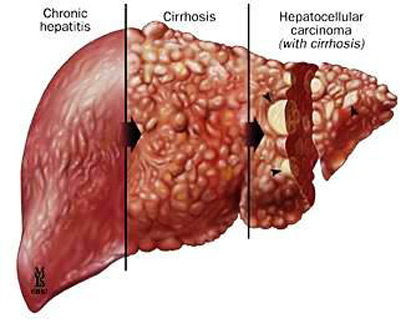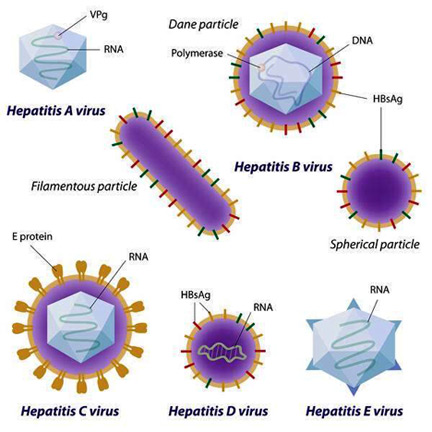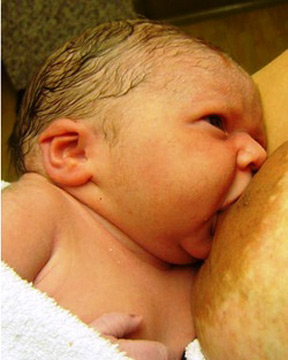|

Tomorrow is World Hepatitis Day:
Early treatment, key to hepatitis prevention
By carol Aloysius
Q. Is viral hepatitis a common disease in Sri Lanka?
A. Yes, it is a common disease all over Sri Lanka.
Q. Are there different forms of hepatitis? E.g. A,B,C etc
A. Yes, there are many different forms of Viral Hepatitis.
 Hepatitis A Hepatitis A
Hepatitis B
Hepatitis C
Hepatitis D (Co-infection with Hepatitis B)
Hepatitis E
Hepatitis G (newly diagnosed, Co-infection with Hepatitis C and HIV
common)
Hepatitis A is the commonest in Sri Lanka. Other types though common
in other developing countries is not common in Sri Lanka.
Q. How does hepatitis spread? What are the commonest modes of
transmission?
A. Hepatitis A and E - Spread through contaminated food and
water, through Hepatitis B, C, D and G - (1) Blood and blood
products in faeces from an infected person.
(Oro Fecal route) Example:- Blood transfusion, intravenous drug
abuse, contaminated needle prick injuries in health care workers,
hospitals, through unprotected sex.
(2) Spread to the fetus from an infected mother during pregnancy
(vertical transmission)
Q. Is it infectious?
A. Yes, all forms are infectious but mode of transmission
differs according to the type of hepatitis.
Q. What are the symptoms?
A. Common symptoms of acute illness are fever, malaise,
nausea, vomiting, abdominal pain, loss of appetite, yellowish
discolouration of eyes, body and urine, lose stools.
Q. Do they vary with the different forms of hepatitis?
A. Yes.
Q. How?
A. Hepatitis A and E - having common symptoms of fever, malaise,
nausea,
Hepatitis B, C, D and G - Mostly these patients are asymptomatic in
initial stages - vomiting, abdominal pain, yellowish discolouration of
eyes, urine and body, passage of lose stools. They are diagnosed
accidentally during screening programs before blood donation, medicals,
before surgery.
Q. Who are most likely to get viral hepatitis? Children?
Youth? Elderly? Or does it affect anyone irrespective of age?
A. Hepatitis A is most common in children and young adults
(commonest in Sri Lanka) Hepatitis E is not common in Sri Lanka but
common in India.
Hepatitis B, C and D affects any one irrespective of age. Hepatitis G
is uncommon in Sri Lanka, common in western countries.
Q. What are the health implications of getting the disease on
each of the following groups –1) very young children 2) older children
3) adolescents? Elderly? Which age is most at risk of serious
complications?
A. Very small children, elderly patients, immuno-suppressed
individuals such as cancer patients on chemotherapy and radiotherapy,
chronic kidney disease patients on haemodialysis, HIV patients, alcohol
addicts, those patients with pre existing liver disease are at high risk
of serious complications.
Q. What happens to a pregnant woman who gets hepatitis? What
form of hepatitis will harm 1) her and 2) her unborn baby most?
A. If the pregnant woman is infected with hepatitis E there is
a very high risk of mortality to the mother. (20 percent mortality). If
the pregnant woman is infected with hepatitis B and C virus the disease
can be transmitted to the baby during child birth.
Q. How is hepatitis diagnosed in a hospital facility?
A. By doing some basic blood test in hospital and conformation by
specific test to find out the type of hepatitis and the infectivity.
Q. How can it be detected at home by the family?
A. If the common signs and symptoms mentioned earlier are noticed
seek medical advice early from the family physician.
 Q. What can the general public do to prevent its spread? Q. What can the general public do to prevent its spread?
A. General public can prevent its spread by observing the
following guidelines:
1. Using boiled and cooled drinking water.
2. Hand washing - before meals and after going to the toilet.
3. Maintaining good food hygiene.
4. Avoiding eating of raw vegetables, salads and meat.
5. Universal vaccination.
6. Early medical advice diagnosis and isolation of patient.
Q. Is there a vaccine to prevent hepatitis?
A. Yes, you can prevent hepatitis A and B by vaccination.
Q. Can patients with hepatitis be treated at home? How?
A. Yes, patients with mild symptoms can be treated at home
symptomatically but patients with severe symptoms should be admitted to
ward for inward treatment.
Q. Can patients infect each other in a hospital through cross
infection? If so how can you minimise this danger? Give us examples from
your hospital if possible?
A. Once a patient is diagnosed they are isolated early and
treatment started early so that there is minimal cross infection.
Q. Is it true that hepatitis (viral) outbreaks in Sri Lanka
occur mostly after heavy rains and flooding? Why?
A. Yes, because of contamination of food and water (especially
Hepatitis A).
Q. Do people who drink contaminated water when their wells and
tanks fill up with ground water after heavy rains also at risk?
A. Yes, consumption of contaminated water in wells and tanks
infect people during heavy rains.
Q. How can they prevent this?
A. By letting their wells run dry and then washing them well
with chlorine? Washing their hands well before meals and after using the
toilet. Not eating from wayside food outlets?
Q. Where can a person seek treatment if he/she presents
symptoms of hepatitis?
A. A person can take treatment in a government hospital.
Q. Is the treatment free?
A. Yes.
Q. In your hospital have you seen an increase in the number of
patients with hepatitis seeking treatment in the past five years? If so
why?
A. Yes, there is a significant increase in number of hepatitis
patients specially B and C because 1) Increased awareness and health
education programs.
2. Good screening of donors prior to blood donation. 3. Increase of
immigration population in the country. 4. Sri Lankan expatriates working
in foreign countries returning to Sri Lanka with infection.
Q. Any advice you can offer to the public about foods they
should and should not eat during a hepatitis outbreak or during rainy
weather in general?
A. People should 1) Drink boiled and cooled water. 2) Avoid
uncooked meat and raw salads.3) Avoid eating unhygienic food from way
side food outlets.
Q. Do you recommend cooked or raw foods in rainy weather?
A. I recommend cooked food during rainy weather.
Q. What is the Health Ministry’s plan to prevent hepatitis or
bring it down to zero level?
A. The Health ministry has taken many measures to minimize
hepatitis patients in the following ways.
1. Introducing Universal vaccination against hepatitis A and B.
2. Vaccinating health care workers and high risk individuals.
3. Health education in school curriculum and education of general
public.
4. Effective screening before blood donation.
Establishing specialised units in Teaching Hospitals and offering
high cost latest treatment free of charge for complete cure of Hepatitis
patients (specially Hepatitis B and C).
6. Using disposable needles and syringes in hospitals.
7. Maintaining strict sterility in operating theatres, labour rooms,
intensive care units, premature baby care units, dialysis units,
endoscopy units, cardiac catheterisation labs.
Q. What are the golden rules to prevent hepatitis and its adverse
health effects?
A. 1. Practice preventive healthcare methods.
2. Seek early medical advice for early diagnosis and early treatment
for complete recovery and avoiding complications.
World Breastfeeding Week from August 1 :
Breastfeeding: lifeline to total development
World Breastfeeding week begins next week. Nutritionists,
paediatricians and all those directly involved in child health will be
collectively promoting the benefits of mothers’ milk for all infants
under the banner ‘Breastfeeding: A wining goal for life'.
That the benefits of exclusive breastfeeding for the first six months
of a child's life are enormous have been well proven by recent studies
and research.The Sunday Observer spoke to Community Nutritionist VISAKHA
TILLEKERATNE for her views on the subject.
Excerpts...
by Carol Aloysius
Q. Breast milk studies in recent years have shown evidence
that in many parts of the world the incidence of illness and deaths is
significantly higher among bottle fed babies than in breastfed babies -
more so in developing countries. Your comments?
 A. Yes. We now have enough data to prove that breast milk
brings about an overall improvement in the infant's health, not only
physically, but in brain growth. It promotes a higher intelligence
quotient A. Yes. We now have enough data to prove that breast milk
brings about an overall improvement in the infant's health, not only
physically, but in brain growth. It promotes a higher intelligence
quotient
(IQ) in infants and in later childhood. It promotes better emotional
and social development. All these improvements have a direct bearing on
the amount of breast milk consumed by the infant from birth.
Q. Examples?
A. Scientific studies have shown that breastfed babies are
less likely to develop diarrhoea, have fewer childhood diseases, are
less likely to develop ear infections and also perform better in their
studies.
Q. What are the distinct qualities of breast milk as against
other milk given to babies e.g. cow's milk?
A. First I must point out that the composition of breast milk is
ideally suited to the needs of the young infant, while the cow's milk
contains the ideal composition for the young calf. So you can never
substitute breast milk for cow's milk as it would compromise the health
of the child. The best milk for the baby is its mother's milk, as it
contains all the nutrients the child needs in the first six months
without the requirement of even water, as was the belief in the past.
Q. But isn't the protein content of breast milk less than in
cow's milk?
A. Yes. But it still has the appropriate balance - not too
high or too low for the baby to digest easily. More importantly the type
of protein in breast milk which is predominantly whey protein makes it
easily digestible and provides baby with the essential amino acids.
Q. Any other benefits?
A. Breast milk is biologically ‘live’ for the needs of the
human child because it contains elements called prebiotics which will
actively propagate healthy bacterial inside the gut and will also help
in optimal digestion in later life.
Whey proteins which I mentioned, also incorporate immunoglobines
which provide protection against infections in newborns which is
specially important in the case of pre-term and low weight ( below 2.5
k. ) babies.
Q. These properties you mentioned, are they unique only to
breast milk?
A. Yes. Cow's milk which has a high content of protein called
caseen is not well digested by the infant. Breast milk has also the
correct amounts of cholesterol, and pre digested fats which are in the
form of polyunsaturated fats that provide the essential fatty acids.
Q. When should the baby be given breast milk after delivery?
A. With in the first hour.
Q. Why?
A. Because by putting a child to suck at its mother's breast
immediately after birth you set up a whole process that precludes its
development. Giving the child its first milk, the rich, thick slightly
yellow milk we call colostrum which is provided by the breast for the
first 2-3 days, is likened to an injection or vaccination since it
protects the child from so many adverse health impacts even in later
life. Colostrum contains all the wonderful combination of nutrients in
the family of immunoglobins. It is also rich in vitamin A, and acts as a
laxative and helps in the expulsion of meconiune, the blackish green
stools seen in newborns in the first few days.
Q. But some mothers have been warned not to give their babies
this milk
A. Because they have been misinformed. If a baby is denied
this milk you deny the optimal benefits of breast-milk from the
inception.
Q. What about other factors such as bonding between mother and
child - isn't that important as well?
A. Very important. When a baby latches onto its mother's
breast and begins to suck, many things happen. It starts the whole
bonding process between mother and child; skin to skin contact, eye
contact, body warmth, recognition, smell, without even knowing it, all
this contribute to emotional bonding which is the beginning of early
childhood stimulation, and is a key factor in the development of the
child's intelligence. We call this ‘kangaroo care’.
Q. What about the benefits for the mother?
A. For the mother, it is a moment of joy and awakening to the
real meaning of motherhood. She is content and feels confident when she
breast-feeds her child. Breastfeeding also helps mothers to space their
families as it delays a second pregnancy childbirth too early. It also
helps prevent cervical cancer.
Q. How often should a baby be fed?
A. On demand. Whenever a baby cries the mother should pick it
up and give it her breast. If he doesn't want the milk, he will stop
crying as soon as he is picked up and probably fall asleep due to the
mother's body warmth.
Q. What if a mother says she is unable to feed her child as
her breasts are too small or she doesn’t have enough milk?
A. No mother can say this as every mother however small her
breasts are, will have enough milk once she starts breastfeeding. The
more she breast-feeds her child, the more breast milk will flow. What
she needs is good counselling and family support. The new mother needs
to have full support from her husband, her parents and in-laws to
continue to breastfeed even when she returns to work.
Q. What happens when she goes to work? Can she still continue
to breastfeed?
A. When she returns to work, she should extract her milk. If
the extracted milk is given to the carer, when feeding the child, she
must feed this milk to the baby in a cup with a beak or a cup and spoon,
but NOT in a bottle. I say this because of the harmful effects that
bottle feeding can do to a child who is being breastfed, in the absence
of the mother.
It confuses the child. The child will learn to suck from the bottle
and will soon get tired and not take its full portion of milk. This
means it will not get the optimal benefits from the mother's milk, even
though it is given.
Q. Any research/studies on the pros and cons of breastfed
babies and bottle-fed babies?
A. Research indicates that breastfed babies have IQ levels
that are at least 10 points higher than that of non breastfed babies.
Also there are studies that show that when the baby comes out of the
mother's womb, it has to adjust to a new room temperature which may be
slightly higher than that of the mother's body temperature. Keeping the
baby to the breast is one way to help the baby's body temperature to
adjust.
Q. Other advantages?
A. The cost factor of bottle feeding and breastfeeding is very
important. For poor mothers already burdened with rising living costs,
having to buy infant formulae and replace bottles, teats etc can be very
expensive. On the other hand it costs almost nothing to a mother to
breastfeed her child.
Q. Isn't the mother's health also important when
breastfeeding?
A. Yes. The mother's especially if she's a teenage mother
should be nutritionally strong and not anaemic and malnourished as she
is likely to give birth to a pre-term or low weight baby.
While breastfeeding she must take a lot of calcium, drink lots of
fresh milk and and eat a well balanced diet of vegetables, proteins,
minerals, iron and fats.
Q. Your advice to mothers?
A. Positioning your child when breastfeeding is very
important. Get into a comfortable position that helps you to feed the
child properly.
If you have flat nipples, don't worry. By correct fixation of the
baby's mouth on the breast to include both nipple and areola in the
baby's mouth, effective breastfeeding can be maintained.
Change from one breast to another when you feel the time is right.
Burp the baby gently by placing the child over the shoulder if the
child has too much wind.
Sing a lullaby and enjoy your time with your child undisturbed. |

